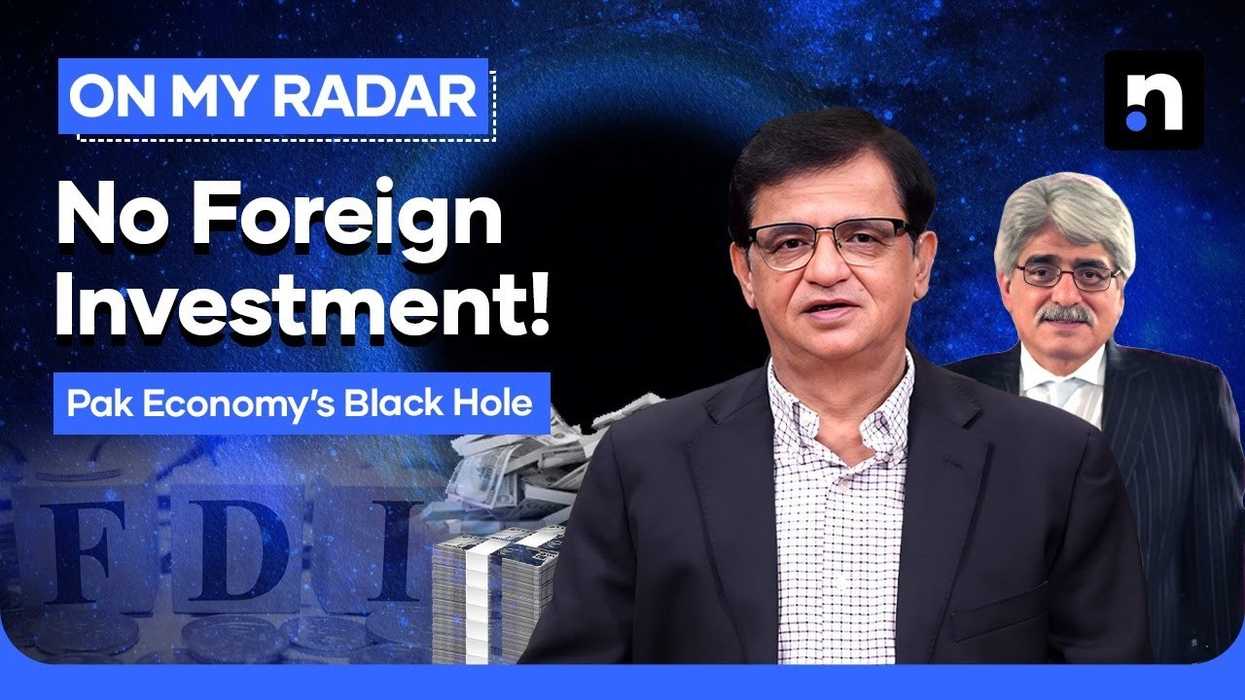Weak FDI is eroding Pakistan’s economic progress
Political instability and red tape are keeping investors away from Pakistan, Kamran Khan says
News Desk
The News Desk provides timely and factual coverage of national and international events, with an emphasis on accuracy and clarity.
Kamran Khan warned that Pakistan’s economic progress is being undermined by what he called three “black holes” that threaten to derail the country’s long-term growth despite gains in foreign policy, defense strategy and some economic indicators.
In his latest vlog, Khan identified the three obstacles as the collapse of foreign direct investment (FDI), the failure to privatize loss-making state enterprises, and sluggish gross domestic product (GDP) growth. He said these factors continue to erode the impact of Pakistan’s civil and military leadership’s efforts to improve the country’s economy and global prestige.
Khan said FDI, which plays a critical role in job creation, industrial growth and technology transfer, has remained stagnant in Pakistan over the past four years. While developing and emerging economies typically see annual FDI growth of 11 to 13 percent, Pakistan’s inflows have remained flat.
Last year, the country received $2.45 billion in FDI, but nearly $650 million was wiped out through portfolio and bond market outflows, leaving only $1.8 billion in net inflows. Nearly half of that investment, about 49.9 percent, came from China.
Khan said Pakistan attracted $208 million in FDI in July, and if the trend continues, the total for the current fiscal year is unlikely to cross $2.5 billion. “Weak FDI signals deep structural flaws in the economy and discourages other investors from entering the market,” he said.
He linked the lack of investment to political instability, governance issues, currency volatility and frequent devaluations, which make investors hesitant to commit long-term funds. While the Special Investment Facilitation Council (SIFC) was launched in June 2023 to boost foreign investment, Khan said red tape, bureaucratic hurdles and regulatory uncertainties have limited its effectiveness.
At the same time, Pakistan’s stock market has shown remarkable resilience. The benchmark KSE-100 index surged 130 percent over the past 20 months, making the Pakistan Stock Exchange one of the world’s best performers. In dollar terms, investors earned 55.5 percent in returns last fiscal year.
However, Khan said that foreign portfolio investment in the market remains negative, with withdrawals continuing to outpace inflows. This divergence, he noted, highlights the lack of confidence among foreign investors despite strong domestic market performance.
He cautioned that without a significant turnaround in FDI, Pakistan’s economic reforms will struggle to deliver sustainable results. “Unless new energy is injected into the economy through foreign investment, the hard work of our civil-military leadership will not yield its full benefits,” Khan said.








Comments
See what people are discussing